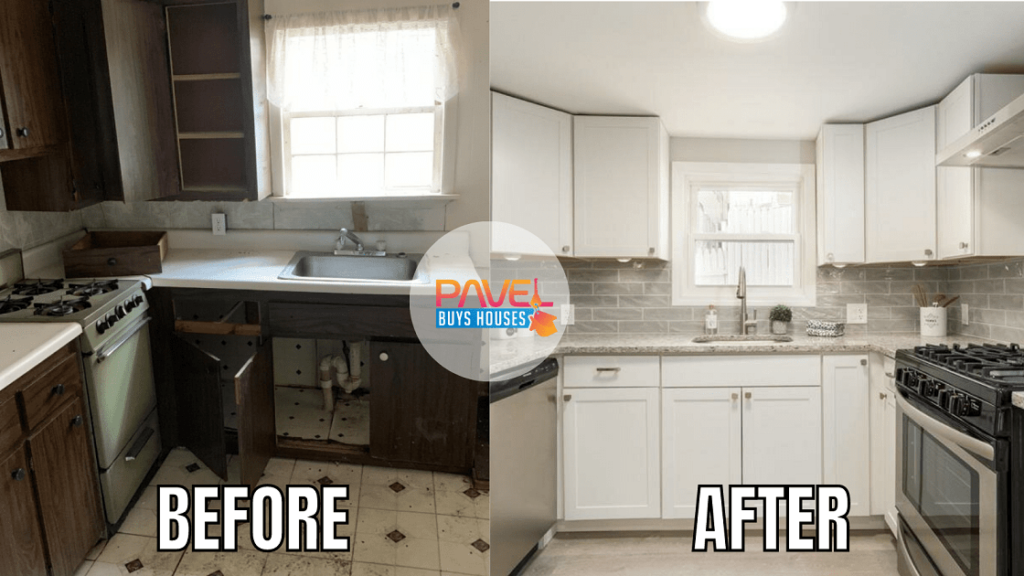
Selling Your Parents’ Tampa Home After They Pass Away
Selling a house is never an easy task, but the process becomes significantly more complicated and emotionally taxing when it involves the home of a deceased parent. As you navigate through your personal grief, dealing with legalities and logistics can feel overwhelming. This is especially true in Tampa, Florida, where the real estate market is both vibrant and competitive.
This guide aims to simplify the process for you, offering advice on how to handle this difficult task. From understanding Florida’s probate and estate laws to preparing the house for sale, we’ll cover everything you need to know. While it may be a challenging journey, remember that each step forward is a step towards healing and closure.
Understanding the Status of the Estate
Before you can begin the process of selling a house after the death of a parent, it’s crucial to understand the current status of their estate. If your parent had a will or trust in place, then you must follow its instructions for handling the property. However, if there was no will or trust, then Florida probate laws will determine how the estate is distributed.
Ways to Inherit a House in Florida After a Parent Dies
In Florida, there are a few ways in which you can inherit a house after the death of a parent. Here are the most common routes:
- Through a Will: This is the most traditional way to inherit property. If your parent had a valid will and they named you as the beneficiary of their house, you would inherit the property upon the completion of the probate process.
- Through Joint Tenancy or Tenancy by The Entirety: If your parent owned the house with someone else – like you – as a joint tenant or tenant by the entirety, the surviving owner automatically inherits the deceased owner’s share of the property. This process is known as the right of survivorship. It bypasses probate and allows for immediate ownership transfer.
- Through a Living Trust: If your parent placed their property in a living trust and named you as the beneficiary, you would inherit the house without going through probate. A trust is a legal entity that holds property for the benefit of another person, the beneficiary. The trustee – the person managing the trust – would simply transfer ownership to you upon the death of your parent.
- Through Intestacy Laws: If your parent died without a will (known as dying “intestate”), Florida’s intestacy laws will dictate how their estate, including their house, is distributed. Typically, the surviving spouse and descendants (children, grandchildren, etc.) are the primary beneficiaries under these laws. This process can be more complex and may require court involvement.
- Through a Life Estate Deed: In some instances, a parent might have created a life estate deed for their house. In this case, your parent (the life tenant) would have the right to live in the house for their lifetime. Upon their death, the house would pass directly to you (the remainderman) without going through probate.
Understanding the method of inheritance is paramount in figuring out who has the legal rights to sell the property and whether probate is necessary. It’s recommended to consult with an experienced estate attorney to navigate these complexities.
Identifying Executors and Involved Parties
The next pivotal step is identifying the key individuals involved in the transaction. If your parent had a will, there would likely be an executor named. The executor is the individual appointed to administer the estate and carry out the provisions of the will. If no executor was named, or there was no will, the court will appoint an administrator.
In cases where the property was held in a trust, the trustee will handle the affairs of the estate. They’re responsible for ensuring the property is transferred according to the trust terms.
It’s also crucial to identify any other parties with a potential claim or interest in the property, such as other siblings, relatives, or even creditors. If the property has a mortgage, the lender becomes a critical party to the transaction as well.
Balancing the interests of all parties can be challenging, so open, clear communication is essential. Remember, everyone is likely dealing with shared grief, and emotions can run high. It’s recommended to seek legal advice if disputes arise to ensure the process runs smoothly and fairly.
Resolving Inheritance Disputes
Inheritance disputes are fairly common after the death of a parent and can further complicate the process of selling a house. These disputes often arise due to different interpretations of the will, uneven distribution of assets, or perceived unfairness in handling the estate.
If you find yourself in the midst of an inheritance dispute, here are a few steps to consider:
- Open Dialogue: Begin by initiating open and honest conversations with all parties involved. Misunderstandings can often be resolved through direct communication. Attempt to understand the perspective of all involved and express your own thoughts and feelings in a respectful manner.
- Mediation: If open dialogue does not resolve the issue, consider seeking the help of a neutral third party, such as a mediator. Mediation is a cost-effective way to handle disputes outside of court, providing a platform for everyone to express their viewpoints and work toward a mutually agreeable solution.
- Legal Representation: If disputes continue to persist, it might be necessary to hire an attorney. Legal representation can help ensure that the estate is managed and distributed in accordance with Florida law and that all parties’ rights are protected.
- Litigation: This is the last resort and involves taking the dispute to court. This route can be costly and time-consuming, and the final decision will be in the hands of the judge. Therefore, it’s generally recommended to exhaust all other options before resorting to litigation.
Understanding Tax Implications
One of the crucial aspects to consider when selling a house after the death of a parent is the potential tax implications. The two most common types of taxes that apply in this context are estate tax and capital gains tax.
Estate Tax
In Florida, the good news is that there is no state-level estate tax. However, at the federal level, an estate tax could apply, but only for estates valued over $12.92 million (as of 2023). Consult a tax advisor or attorney to understand if your parent’s estate could be subject to federal estate tax.
Capital Gains Tax
When it comes to capital gains tax, beneficiaries are typically entitled to a “stepped-up” basis. This means that the property’s basis is its fair market value at the time of the parent’s death, not the original purchase price. If the home is sold shortly after the parent’s death, the capital gains, if any, would be negligible, and thus the capital gains tax would also be minimal. However, if the home appreciates significantly in value before it’s sold, there could be a significant capital gains tax.
Every situation is unique, and tax laws can be complex. Therefore, it’s advisable to seek professional tax advice when dealing with inherited property to avoid any potential tax pitfalls. Remember, taxation is a mandatory legal contribution to state revenue, and failure to comply can lead to legal consequences.
Addressing Debts, Taxes, and Liens
It’s also vital to address any debts, taxes, or liens associated with the property before it can be sold.
Debts
Any unpaid debts your parent may have had at the time of their death could become a lien on their estate, including the property. This could include medical bills, credit cards, or personal loans. The executor or administrator of the estate is responsible for using the estate’s assets to pay off these debts.
Property Taxes
Unpaid property taxes can also create a lien on the property. It’s important to ensure all property taxes have been paid up to date. If not, they will need to be paid before or at the time of sale.
Liens
Additionally, there may be other liens on the property. This could include a mortgage lien, a home equity line of credit (HELOC), or a mechanic’s lien from unpaid work done on the property. Any liens must be paid off before a clear title can be transferred to a new owner.
Before listing the property for sale, it’s advisable to conduct a title search to identify any liens or encumbrances. If there are liens on the property, they will need to be satisfied either with the estate’s assets or from the proceeds of the sale.
Remember, if you’re unsure about any of these issues, it’s always recommended to seek professional legal advice to ensure you’re complying with all legal requirements and obligations.
Preparing the House for Sale
As the legal and financial aspects are taken care of, the attention then turns to the physical condition of the house. This involves not only cleaning and clearing out belongings but also making necessary repairs and improvements, which could potentially increase the home’s market value. Here are some steps to consider:
1. Clearing Personal Belongings: A house filled with personal belongings can be emotionally challenging to walk through let alone prepare for sale. However, personal items can distract potential buyers, and they might find it hard to envision themselves living in the house. It’s important to sort and clear out personal items, which can be divided into items to keep, sell, donate, or throw away.
2. Repairs and Improvements: Conduct a thorough inspection of the house to identify any repairs that are needed. Minor improvements such as painting, fixing leaky faucets, or patching holes can make a big difference. If the house is significantly outdated, larger renovations might be beneficial, but be wary of the costs versus the potential return on investment.
3. Staging the House: Staging a house can make it more appealing to potential buyers. This might involve rearranging furniture, bringing in new furnishings, or applying a fresh coat of paint in more neutral colors. The goal is to create an inviting space that allows potential buyers to imagine their life in the home.
Remember, the process of selling a house after the death of a parent is not just a legal or financial task, but an emotional journey. Take the time you need, seek support, and take care of yourself throughout the process.
Selling Your Inherited House for Cash
If you’re looking to sell your inherited property quickly and without the hassle of repairs, updates, and showings, consider selling your house for cash. This approach allows you to bypass the traditional real estate market, providing a fast, straightforward solution especially useful in times of grief and stress.
We at Pavel Buys Houses understand the emotional weight of selling a family home and are committed to providing a respectful, smooth transaction that honors your family’s legacy.
Contact us today to receive a no-obligation cash offer for your inherited property. Let us help you close this chapter with dignity and ease, freeing you to focus on what truly matters – remembering and honoring the life of your loved one.
We Buy Homes for Cash All Over Tampa

Learn “How We Buy Houses” & Our Process
Step by step 100% transparent process explaining how we buy houses fast!

Meet the Team & Learn About Our Company
Discover the “Why” behind what we do & what makes our “We Buy Houses” company different.

Get a Fast, No Obligation Cash Offer Now!
Get a quick cash offer for your home by completing our form and we’ll get back to you right away 🙂
Get My Cash Offer
We buy houses in any condition. We won’t ask you to do any repairs or pay any fees. Request your cash offer today to get started!
What Type of Properties Do You Buy in Tampa?
We can buy all types of properties in Tampa, Florida, including:
- Single-family homes
- Multi-family homes
- Townhouses
- Condos
- Apartments
- Commercial properties
- Vacant land
We understand that selling a property can be challenging. That’s why we offer a fast and easy solution. We can buy your property for a fair cash price, even if it has back taxes. We will also handle all of the paperwork and closing costs, so you can sell your property with minimal hassle.
If you are looking for a way to sell your property quickly and easily, we encourage you to contact us today. We would be happy to answer your questions and make you a fair cash offer on your property.
Top Rated Local Cash Home Buyers in Tampa
Sell your house without making any repairs. We’ll purchase your home or condo as-is, allowing you to take what’s most important to you and leaving the rest for us to handle!

We’ll buy any home (yes, even an inherited house you’ve discovered is a hoarder house) and eliminate the headaches and stress associated with a traditional home sale.
We Buy Homes, Condos & Townhouses As-Is
We’ve got your back, helping you find the right way out, whatever your situation. Here are common reasons homeowners want to sell their house fast in Tampa, Florida.
Where We Buy Properties in Tampa

Looking to sell your property fast for cash in Tampa, Florida? We can help! We’re interested in buying properties of all types, from single-family homes to condos. Whether your property needs repairs or is in perfect condition, we’ll make you a fair cash offer.
Hillsborough County:
- Apollo Beach
- Balm
- Bloomingdale
- Brandon
- Carrollwood
- Cheval
- Citrus Park
- Dover
- East Lake-Orient Park
- Egypt Lake-Leto
- Fish Hawk
- Gibsonton
- Greater Northdale
- Keystone
- Lake Magdalene
- Lutz
- Mango
- New Tampa (University)
- Northdale
- Palm River-Clair Mel
- Pebble Creek
- Plant City
- Progress Village
- Riverview
- Ruskin
- Seffner
- Sun City Center
- Tampa
- Temple Terrace
- Thonotosassa
- Town ‘n’ Country
- Valrico
- Westchase
Hernando County
Sarasota County
Pinellas County:
- Clearwater
- Belleair
- Belleair Shores
- Belleair Beach
- Belleair Bluffs
- Dunedin
- Indian Shores
- Indian Rocks Beach
- Kenneth City
- Largo
- Madeira Beach
- North Redington Beach
- Oldsmar
- Redington Beach
- Redington Shores
- Seminole
- Safety Harbor
- South Pasadena
- St. Petersburg
- Tarpon Springs
- Treasure Island
Polk County:
Manatee County:
Pasco County









